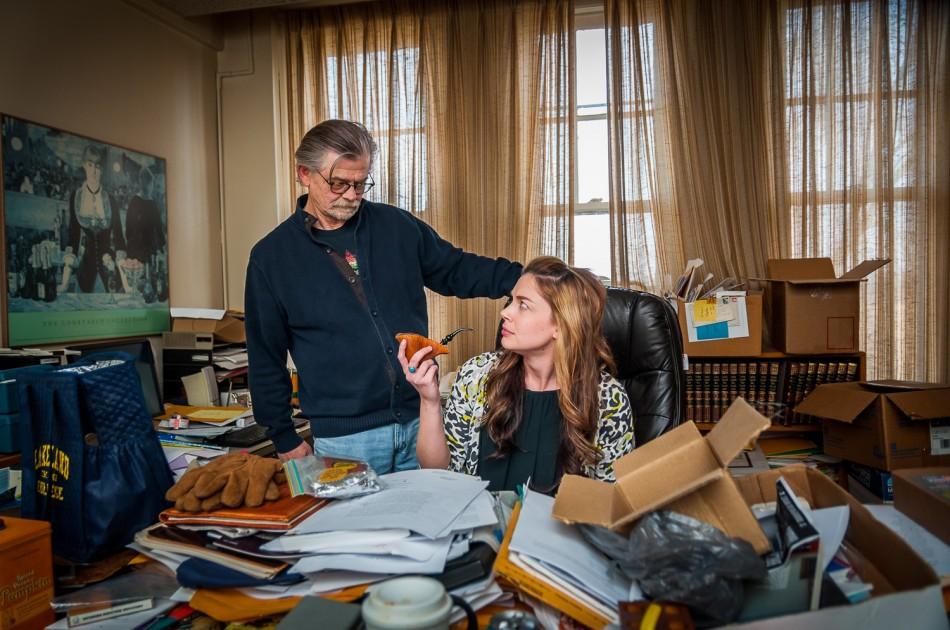Professors team up to teach May Term
Karl Elder and Jodie Liedke will be in the classroom together for the first time since Liedke was Elder’s student.
April 22, 2015
This May Term, students will have the opportunity to take an Honors seminar taught by Jodie Liedke, assistant professor of composition, and Karl Elder, Fessler professor of creative writing and poet in residence. The class is designed to look at the aspects of Lincoln’s life less commonly discussed in history classes.
“It’s about looking through Lincoln in a different lens (by) looking at some of his poetry and definitely looking at the relationship with him and Mary Todd. (We will also look) through a psychological lens as well as at speeches and lots of art,” said Liedke.
Liedke and Elder will act more as facilitators rather than lecturers for the class, which will encourage students to do research and bring their findings to the classroom for discussion.
Both professors are looking forward to discovering how the class will turn out, as it will be a convergence of two very different teaching styles developed over different periods of time.
Elder, who began teaching at Lakeland in 1979, describes his methods as “unorthodox.” His reputation as a tough teacher comes from his realization that when he demanded more of students, he got the best results.
“I was a real cupcake,” he said of his earlier days as a professor.
Elder also notes that one of the most effective strategies in his repertoire is his use of sarcasm.
“There are some people who respond better to sarcasm, and it’s my notion that I should use it,” said Elder. “There are other courses for which I don’t use it at all.”
His use of planning is also dependent on the type of course he’s teaching.
“I’m not a big planner when it comes to content-oriented courses,” said Elder. “Of course, with method courses, I’m a huge planner.”
Though it might be conditional in Elder’s methodology, Liedke, who began teaching at Lakeland in 2013, utilizes planning consistently in her teaching strategies, and she has an organized and fast-paced class.
“I have more of a coaching-like style that’s very intense (and) very detail-oriented,” said Liedke. “They know the first day that it’s not going to be an easy task taking a class with me because I want to prepare them for that job that they’re seeking afterwards, through writing.”
Despite this key difference between her style and Elder’s, Liedke believes she owes some of her technique to her time as a student at Lakeland.
“I think I developed a little bit of Karl in my teaching style,” said Liedke. “I always tell my students, ‘Am I going to frustrate you? I probably will, but you’ll be frustrated now. When you get into the next course, you’ll already have all that frustration out because you know what you’re doing.’”
Liedke is also optimistic about teaming up with Karl.
“It will be kind of like a back-and-forth conversation, but then you’ve got a group of 14 students,” said Liedke. “I think we’ll push each other’s boundaries; therefore, the students will push each other’s as well in terms of looking at material, looking at a portrait or looking at a clip.”
Elder believes his experience of being Liedke’s advisor and professor for several of her classes at Lakeland will also be helpful.
“She knows how I operate,” said Elder. “She knows a lot more about how I operate than I know how she operates, except that I know her as a student in a way that she can’t even know herself.”
This aspect is also fascinating to Liedke.
“I haven’t been in the classroom with him since I was a student here, so it’ll be interesting for me to see how much his teaching style has evolved from when I was a student,” said Liedke.


